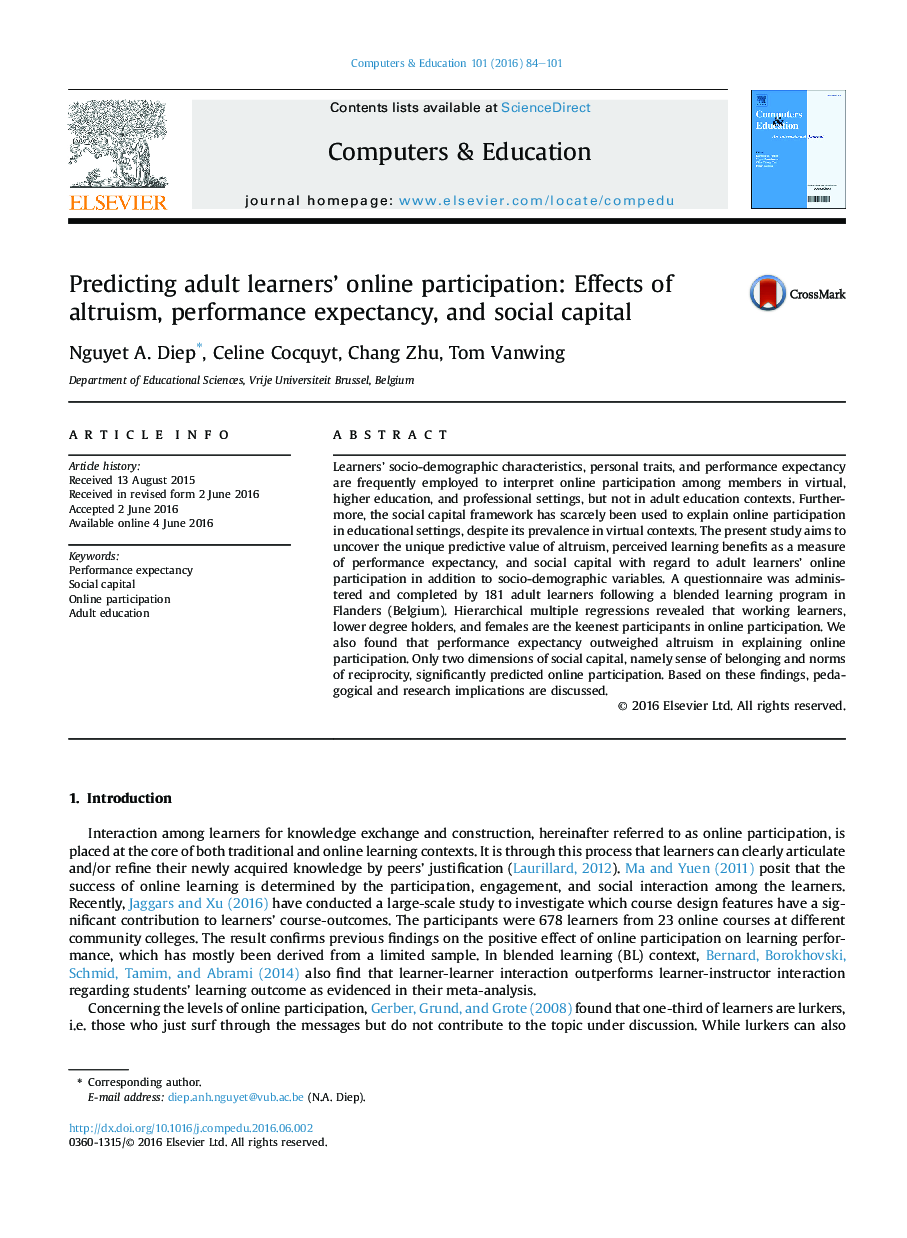| Article ID | Journal | Published Year | Pages | File Type |
|---|---|---|---|---|
| 348165 | Computers & Education | 2016 | 18 Pages |
•Adult learners’ online participation was captured by three different dimensions.•Lower degree holders, females, and working learners were found to be more active online.•The unique predictive values of altruism, performance, and social capital were examined.•Perceived learning benefits were the most significant predictor of online participation.•Norms of reciprocity and sense of belonging enhanced online participation, but not trust.
Learners’ socio-demographic characteristics, personal traits, and performance expectancy are frequently employed to interpret online participation among members in virtual, higher education, and professional settings, but not in adult education contexts. Furthermore, the social capital framework has scarcely been used to explain online participation in educational settings, despite its prevalence in virtual contexts. The present study aims to uncover the unique predictive value of altruism, perceived learning benefits as a measure of performance expectancy, and social capital with regard to adult learners’ online participation in addition to socio-demographic variables. A questionnaire was administered and completed by 181 adult learners following a blended learning program in Flanders (Belgium). Hierarchical multiple regressions revealed that working learners, lower degree holders, and females are the keenest participants in online participation. We also found that performance expectancy outweighed altruism in explaining online participation. Only two dimensions of social capital, namely sense of belonging and norms of reciprocity, significantly predicted online participation. Based on these findings, pedagogical and research implications are discussed.
